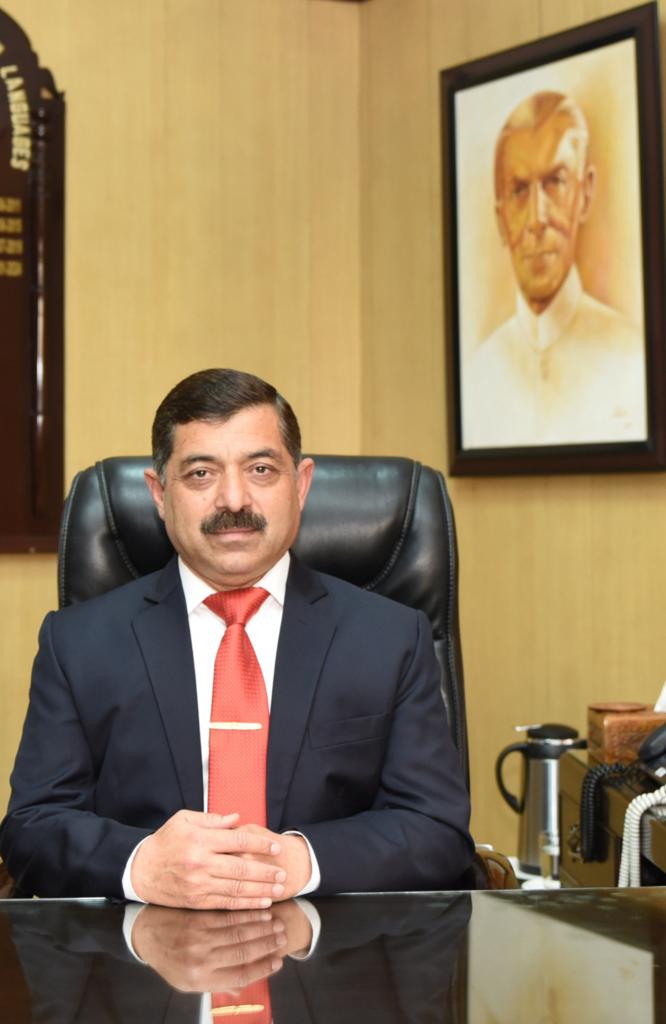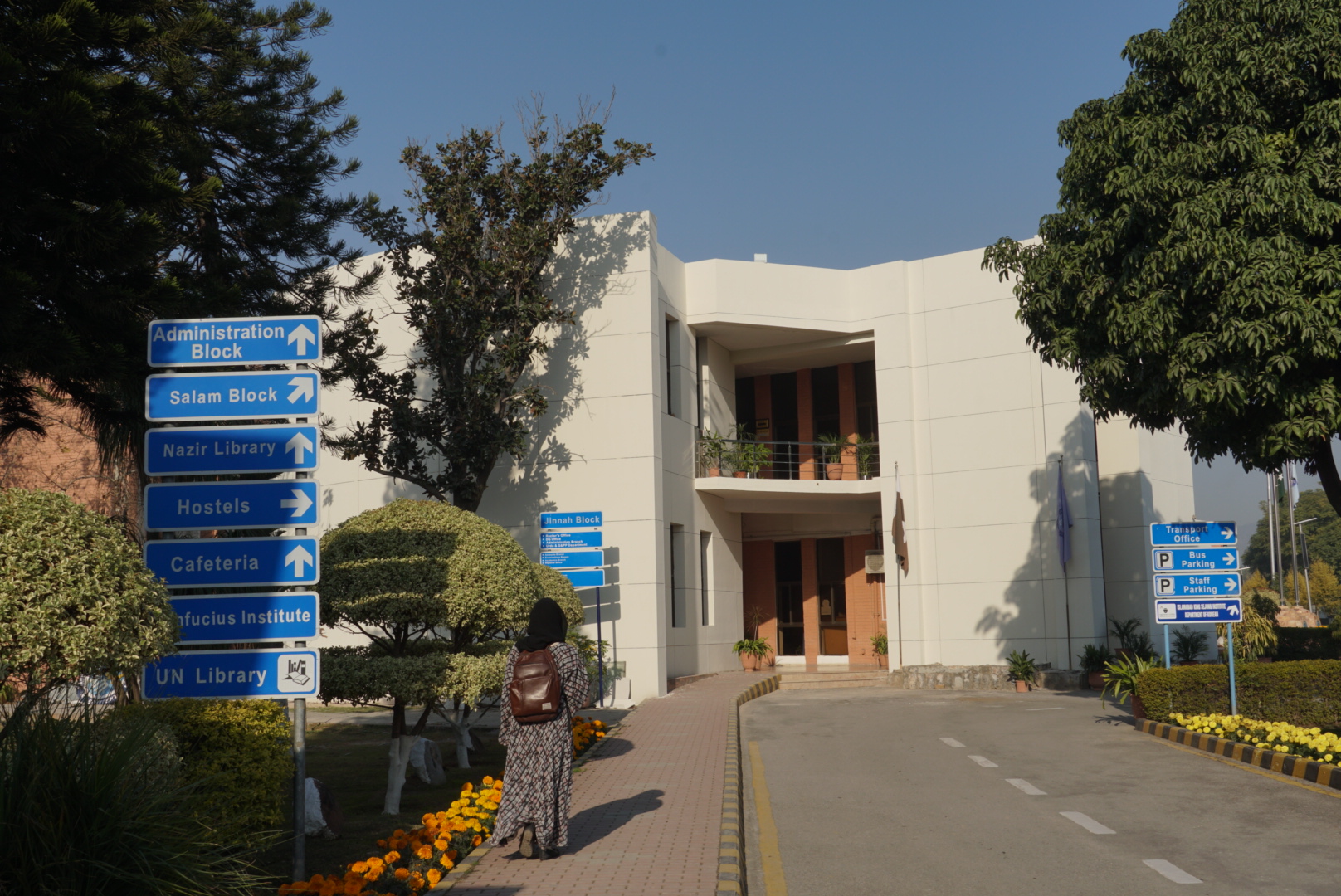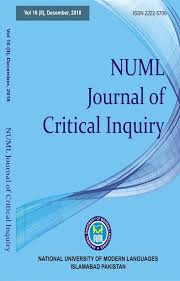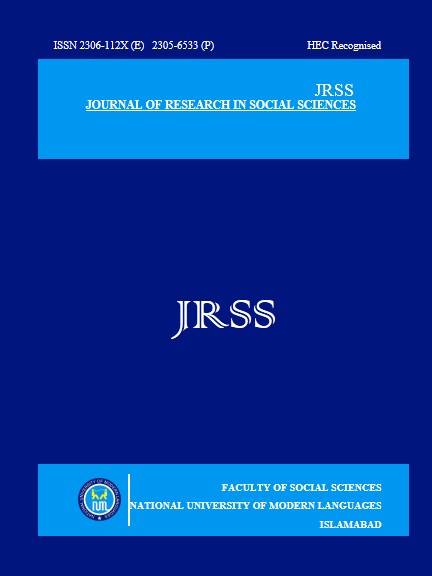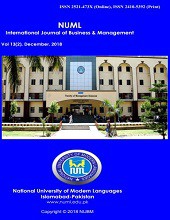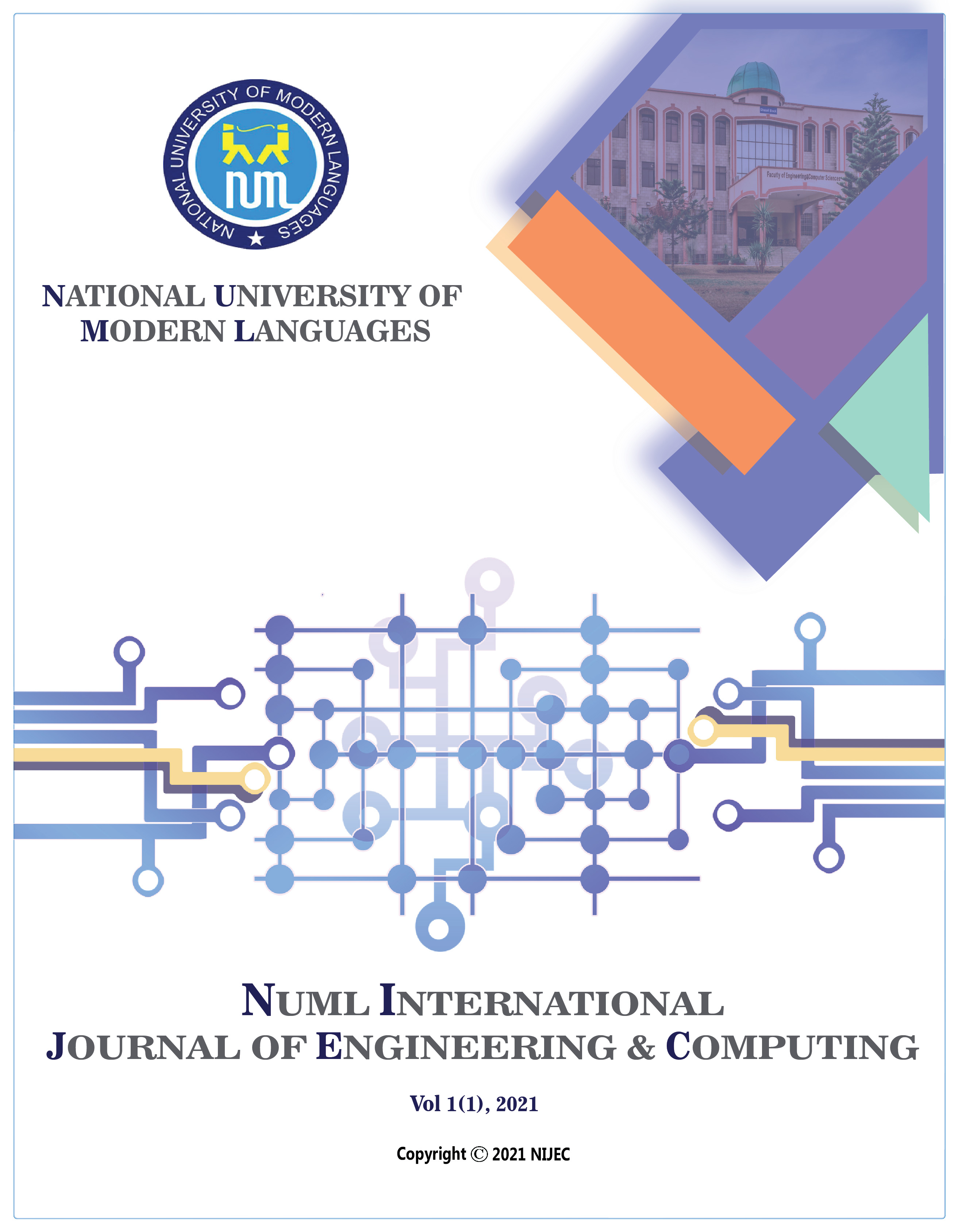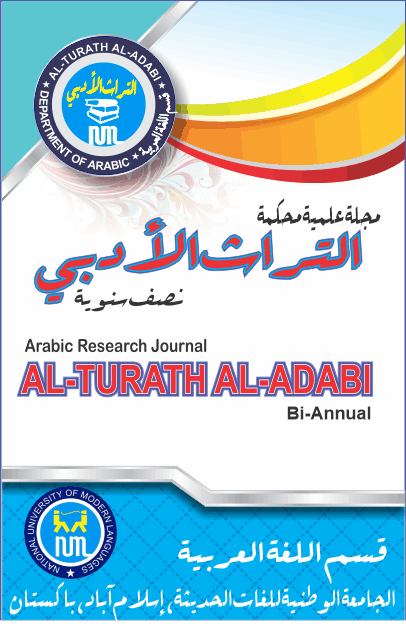Program Information
| Duration | : | 4 |
| Level | : | BS |
| Shift | : | Morning |
| Credit Hrs | : | 136 |
| Semester | : | 8 |
Similar Programs
BE Electrical Engineering
Overview:
Overview
The Department of Electrical Engineering is currently offering BE Electrical Engineering (PEC accredited) and MS Electrical Engineering programs. Since its inception in 2006, the department is conscious of the quality of education it imparts to the students, through its highly qualified and experienced faculty from International and National Universities. The classrooms are digitally equipped to meet modern quality standards. We have a total of 11 Labs with state-of-the-art equipment.
Department of Electrical Engineering is situated in the Ghazali Block of NUML’s main campus-Islamabad and is currently headed by Dr. Sheraz Alam Khan
Our Vision
Become a center of excellence in producing competent graduates for contributing value to the engineering knowledge, economy, and society
Our Mission
- Motivating the graduates to become highly skilled professional engineers acquainted with knowledge of emerging trends in engineering.
- Producing socially and ethically responsible graduates having innovative research skills to effectively contribute to industrial and societal progression.
Program Educational Objectives (PEOs)
Following Program Educational Objectives (PEOs) have been defined after a thorough discussion between the faculty, alumni members and industry representatives. These PEOs have been defined by keeping in view the department’s vision and mission. The graduates of the Electrical Engineering program are expected to have the following skills after five years of their graduation.
|
PEO 1 |
To impart graduates with the ability to analyze, explore, design, and develop viable solutions to complex engineering problems in a diversified professional work environment |
|
PEO 2 |
To produce graduates that will contribute to the development of socio- |
|
PEO 3 |
To develop graduates with effective communication skills and the ability to thrive in their professional careers individually as well as collectively |
|
PEO 4 |
To entail graduates with managerial skills and aptitude for lifelong learning |
Program Learning Outcomes(PLOs)
PLO-01: Engineering Knowledge: An ability to apply knowledge of mathematics, science, engineering fundamentals and an engineering specialization to the solution of complex engineering problems.
PLO-02: Problem Analysis: An ability to identify, formulate, research literature and analyze complex engineering problems reaching substantiated conclusions using first principles of mathematics, natural sciences and engineering sciences.
PLO-03: Design/Development of Solution: An ability to design solutions for complex engineering problems and design systems, components or processes that meet specified needs with appropriate consideration for public health and safety, cultural, societal, and environmental considerations.
PLO-04: Investigation: An ability to investigate complex engineering problems in a methodical way including literature survey, design and conduct of experiments, analysis and interpretation of experimental data and synthesis of information to derive valid conclusions.
PLO-05: Modern Tool Usage: An ability to create, select and apply appropriate techniques, resources and modern engineering and IT tools, including prediction and modeling to complex engineering activities, with an understanding of the limitations.
PLO0-6: The Engineer and Society: An ability to apply reasoning informed by contextual knowledge to assess societal, health, safety, legal and cultural issues and the consequent responsibilities relevant to professional engineering practice and solution to complex engineering problems.
PLO-07: Environment and Sustainability: An ability to understand the impact of professional engineering solutions in societal and environmental contexts and demonstrate knowledge of and need for sustainable development.
PLO-08: Ethics: Apply ethical principles and commit to professional ethics and responsibilities and norms of engineering practice.
PLO-09: Individual and Team Work: An ability to work effectively, as an individual or in a team, on multifaceted and /or multidisciplinary settings.
PLO-10: Communication: An ability to communicate effectively, orally as well as in writing, on complex engineering activities with the engineering community and with society at large, such as being able to comprehend and write effective reports and design documentation, make effective presentations, and give and receive clear instructions.
PLO-11: Project Management: Ability to demonstrate management skills and apply engineering principles to one’s own work, as a member and/or leader in a team, to manage projects in a multidisciplinary environment.
PLO-12: Life-Long Learning: An ability to recognize importance of, and pursue lifelong learning in the broader context of innovation and technological developments.
Computer Systems Engineering
Description
Recent advancements in computing technologies have revolutionized the world of engineering. The global market demand for expertise in fields like wireless sensor networks, Internet-of-things (IoT), machine learning (ML), data sciences, cloud computing, etc. have immensely increased. Therefore, the HEC has approved the Computer System stream under the umbrella of BE Electrical Engineering. National University of Modern Languages (NUML) being one of the top Universities in Pakistan RWP/ISB has now adopted this program. Adapting to the market demand and to meet international standards, we have already shifted to the Outcome-Based Education (OBE) system in-line with the requirement of PEC to be a signatory member of the Washington Accord.
This Computer System Engineering program is most useful for engineering students seeking a career in the field of:
- Data Sciences
- Internet of Things
- Machine Learning
- Artificial Intelligence
- Computing technologies (Cloud Computing, Blockchain, etc.)
Eligibility:
a. FSc - Pre-Engineering (Physics, Mathematics & Chemistry) from any board of Intermediate and Secondary Education OR an Equivalent foreign qualification with Physics, Mathematics & Chemistry.
b. At least 60 % aggregate marks each in Matric and FSc. Equivalent marks for Foreign qualification to be determined by IBCC, Islamabad.
c. Diploma of Associate Engineering Examination with at least 60% aggregate marks in the discipline relevant to Electrical Engineering
Elective Courses
- Digital Signal Processing
- Database Management System
- Machine Learning
- Data Communication
- Computing Technology
- Wireless Networks
- Computer Graphics
- Information Security
- Digital Image Processing
Courses:
| S.No | Course Code | Subject | Credit Hours |
|---|---|---|---|
| 1 | EEFE-111 | Functional English | 2+0 |
| 2 | EECA-103 | Calculus and Analytical Geometry | 3+0 |
| 3 | EELC-121 | Linear Circuit Analysis | 3+1 |
| 4 | EEIT-102 | Introduction to Info & Communication Technology(IICT) | 1+1 |
| 5 | EEIS-211 | Islamic Studies | 2+0 |
| 6 | EEAP-104 | Applied Physics | 3+1 |
| 7 | EEDE-108 | Differential Equations | 3+0 |
| 8 | EEPS-311 | Pakistan Studies | 2+0 |
| 9 | EEPF-107 | Programming Fundamentals | 3+1 |
| 10 | EEED-227 | Electronic Devices and Circuits | 3+1 |
| 11 | EECV-109 | Complex Variables and Transforms | 3+1 |
| 12 | EECS-106 | Communication Skills | 2+0 |
| 13 | EEDL-223 | Digital Logic Design | 3+1 |
| 14 | EEEN-222 | Electrical Network Analysis | 3+1 |
| 15 | EELA-105 | Linear Algebra | 3+0 |
| 16 | EEES-344 | Introduction to Embedded Systems | 3+1 |
| 17 | EESP-224 | Probability Methods in Engineering | 3+0 |
| 18 | EESS-226 | Signals and Systems | 3+1 |
| 19 | EEEM-345 | Electrical Machines | 3+1 |
| 20 | EEEF-225 | Electromagnetic Theory | 3+0 |
| 21 | EECS-342 | Communication Systems | 3+1 |
| 22 | EELC-341 | Linear Control Systems | 3+1 |
| 23 | EERW-301 | Technical Report Writing | 3+0 |
| 24 | EEFP-499 | Final Year Project – I | 0+3 |
| 25 | EEDI-363 | Elective – III | 3+1 |
| 26 | EEHR-402 | Human Resource Management | 3+0 |
| 27 | EEFP-499 | Final Year Project – II | 0+3 |
| 28 | EEWP-122 | Workshop Practice | 0+1 |
| 29 | EEFL-412 | Foreign Language II | 3+0 |
| 30 | EECA-221 | Engineering Drawing | 0+1 |
| 31 | EEOO-251 | Object Oriented Programming | 3+1 |
| 32 | EENA-201 | Numerical Analysis | 3+0 |
| 33 | EEDA-202 | Data Structure and Algorithm | 3+1 |
| 34 | EEDS-361 | Digital Signal Processing | 3+1 |
| 35 | EEOS-343 | Operating System | 3+1 |
| 36 | EEES-344 | Introduction to Embedded System | 3+1 |
| 37 | EEDI-362 | Digital Image Processing | 3+1 |
| 38 | EESE-351 | Introduction to software Engineering | 3+0 |
| 39 | EEFL-411 | Foreign Language I | 3+0 |
| 40 | EEPD-461 | Machine Learning | 3+1 |
| 41 | EEDC-462 | Data Communication | 3+1 |
| 42 | EEEM-401 | Engineering Economics and Management | 3+1 |
| 43 | EECN-441 | Computer Communication and Network | 3+1 |
| 44 | EEDS-361 | Elective I | 3+1 |
| 45 | EEDM-362 | Elective II | 3+1 |
| 46 | EEML-464 | Elective – IV | 3+1 |
| 47 | EEFL-470 | Foreign Language | 3+0 |
| 48 | EEPE-471 | Professional Ethics | 3+0 |
| 49 | EEWAN-465 | Elective – V | 3+0 |

